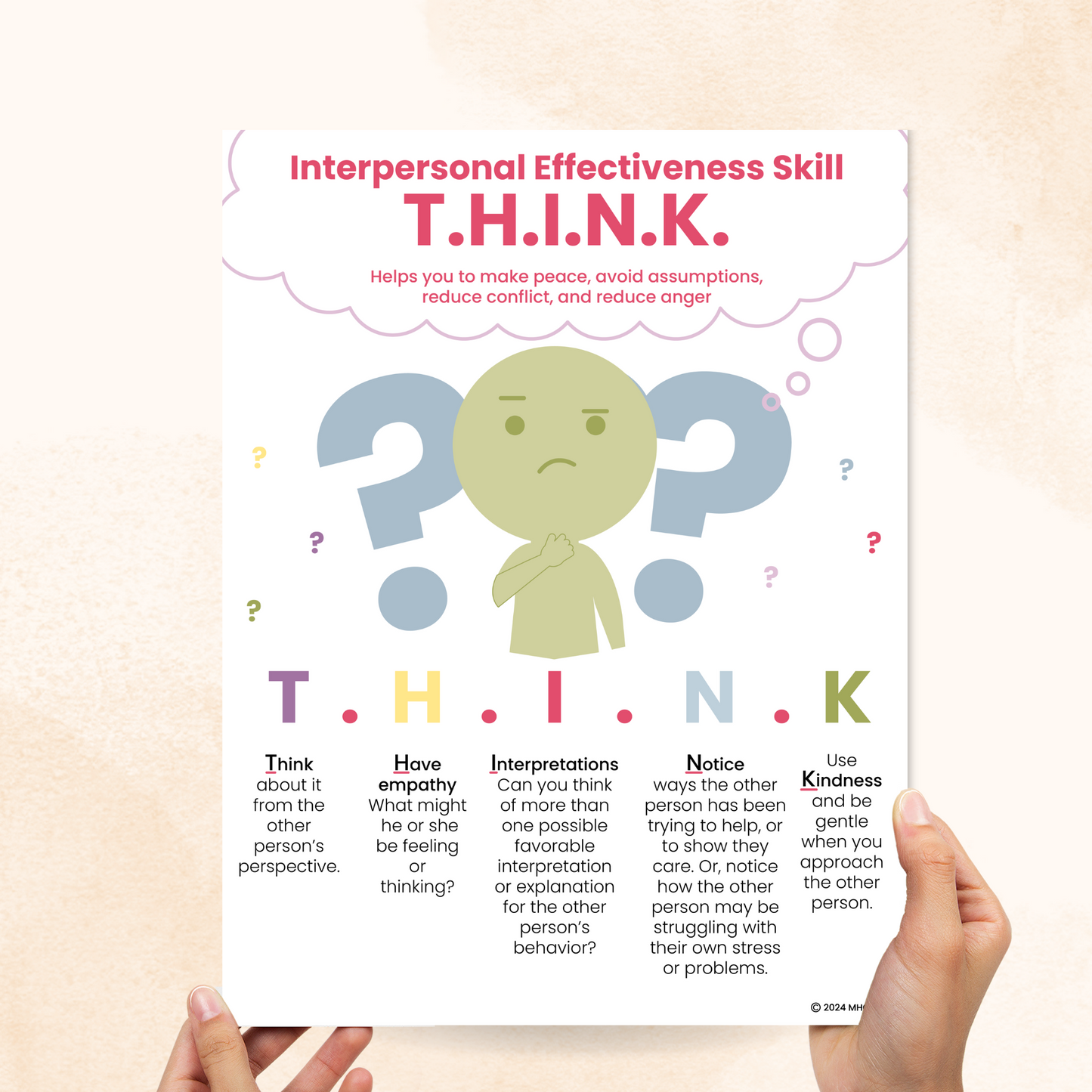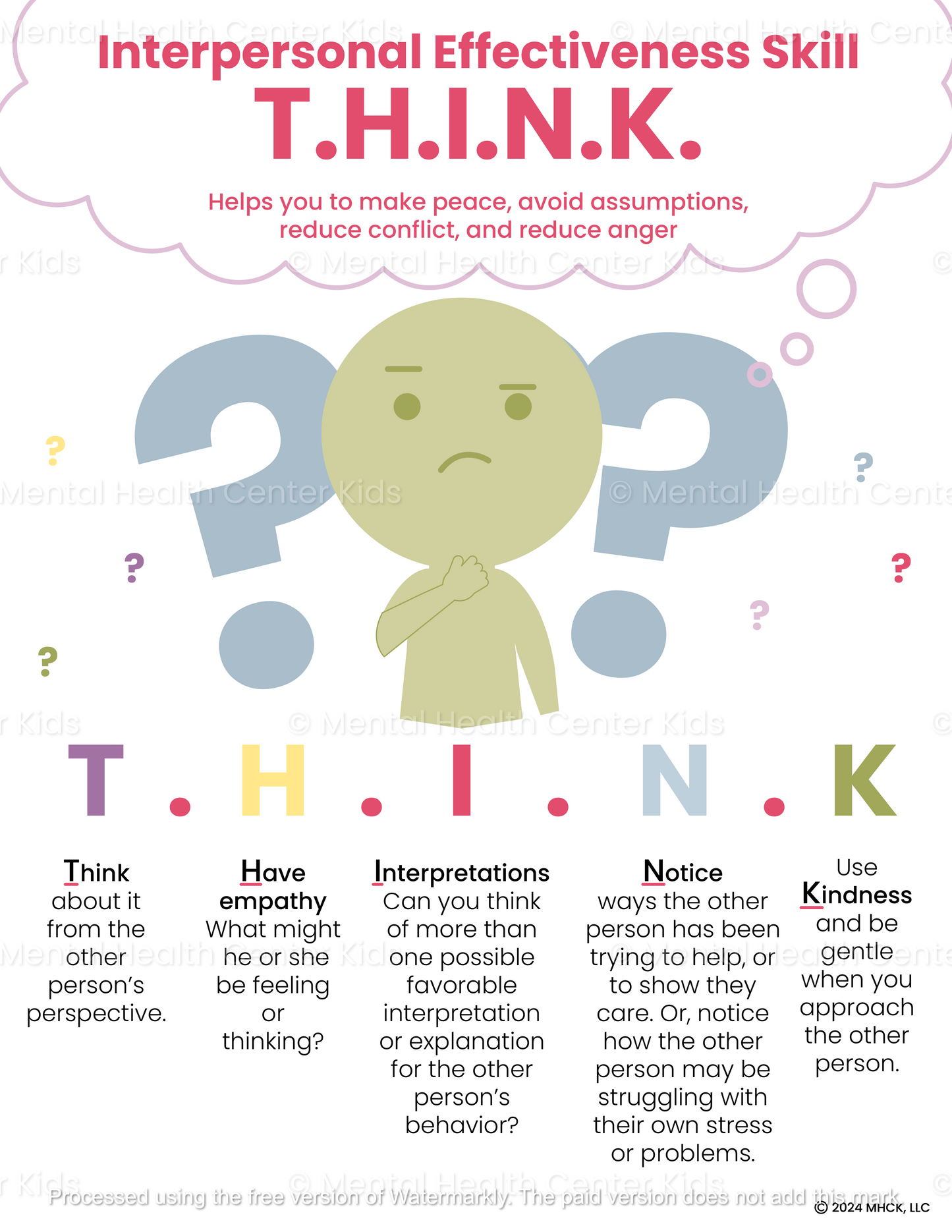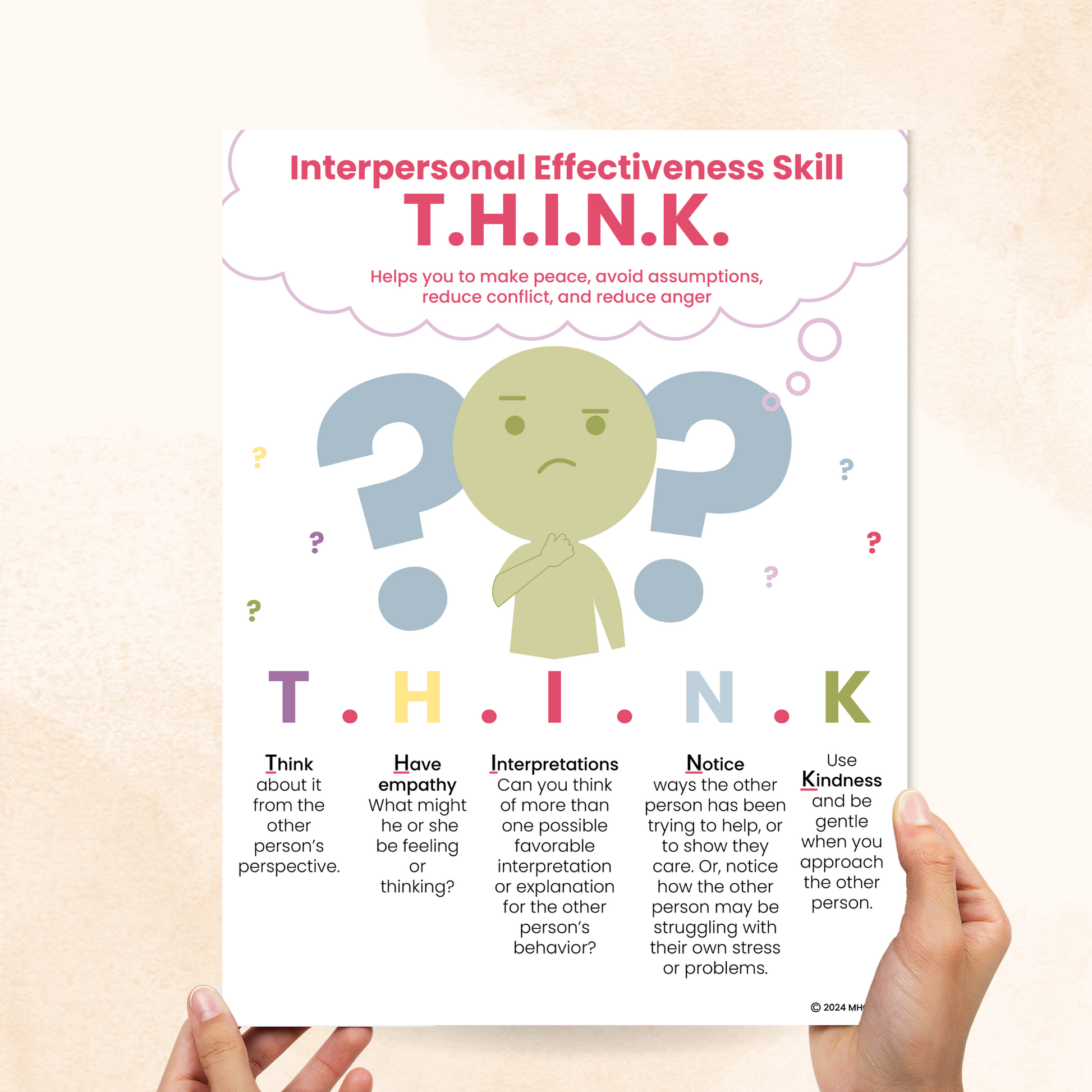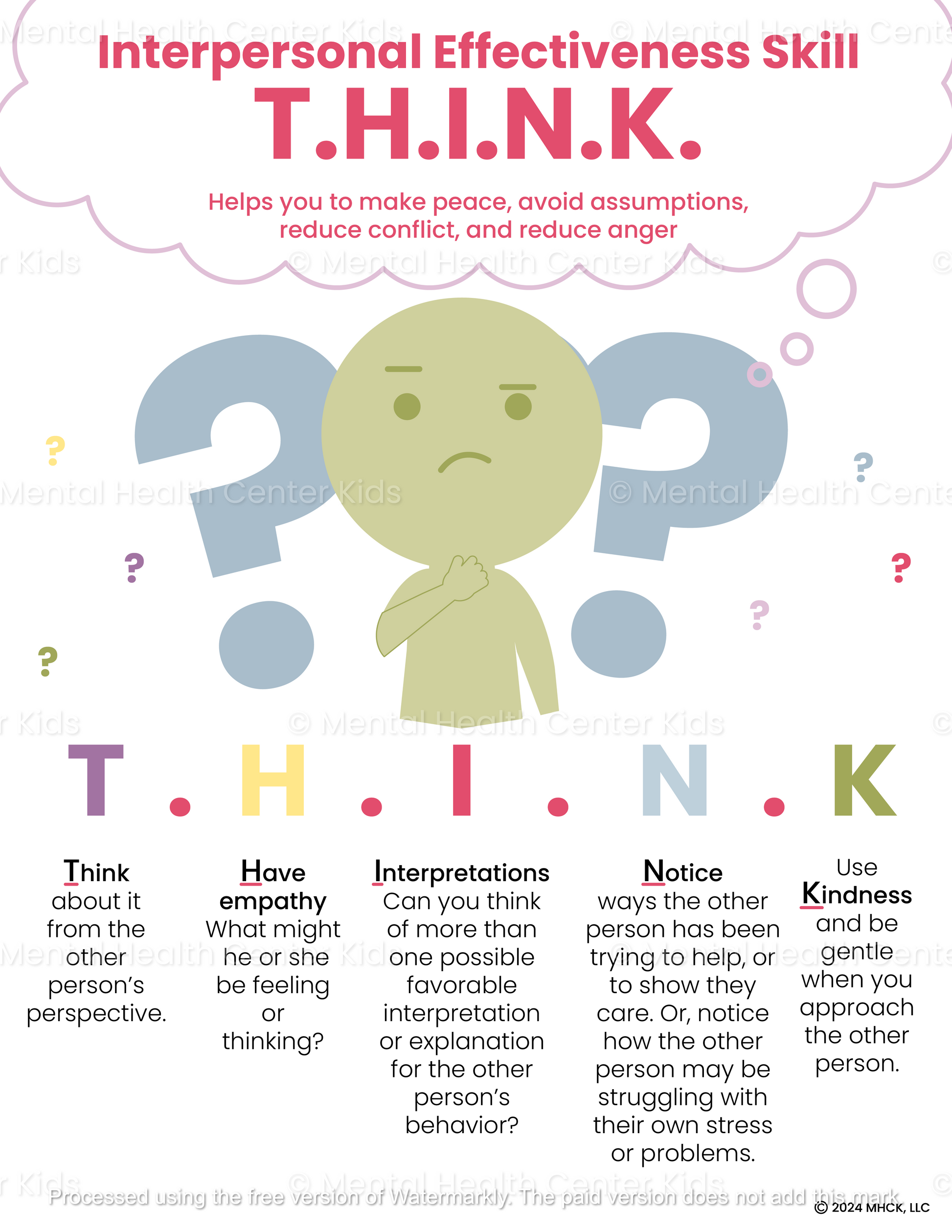DBT THINK Skill (PDF)


The DBT THINK skill stands for Think, Have empathy, Interpretations, Notice, and Kindness which helps clients to make peace, avoid assumptions, and reduce conflict or anger. The THINK skill helps individuals deal with conflict in an empathetic and mindful way by shifting negative thought patterns to a calmer state of mind. The consistent use of this skill can have a positive benefit in several areas of our lives.
The DBT THINK Skill PDF handout introduces the THINK acronym. Each component of the acronym includes a helpful tip or suggestion for resolving conflict. For example, it encourages clients to think about the situation from the other person’s perspective, or to think about other, more favorable explanations for a person’s behavior.
This handout benefits kids and teens by improving their mindfulness skills in interpersonal interactions. It helps them to more effectively manage their thoughts and feelings, and extend compassion towards themselves and others. Educators and therapists can use this handout during group or individual sessions.
Our DBT Think Skill Worksheets allow individuals to apply and reflect on this skill, which makes them helpful add-ons to this handout.
*This item is an instant digital download. A link to download your files will be emailed to you once payment is confirmed.
Want more resources like this? Check out our full catalog of DBT worksheets and handouts.
References:
- Cheang, R., Gillions, A., & Sparkes, E. (2019). Do Mindfulness-Based interventions Increase empathy and compassion in Children and Adolescents: A Systematic review. Journal of Child and Family Studies, 28(7), 1765–1779. https://doi.org/10.1007/s10826-019-01413-9
- De La Fuente Anuncibay, R., González-Barbadillo, Á., Sánchez, D. O., & Pizarro-Ruiz, J. P. (2020). Mindfulness and Empathy: Mediating factors and gender differences in a Spanish sample. Frontiers in Psychology, 11. https://doi.org/10.3389/fpsyg.2020.01915
- Jones, S. M., Bodie, G. D., & Hughes, S. D. (2016). The impact of mindfulness on empathy, active listening, and perceived provisions of emotional support. Communication Research, 46(6), 838–865. https://doi.org/10.1177/0093650215626983
- Instant digital download
- File: PDF
- Size: 8.5" x 11"



